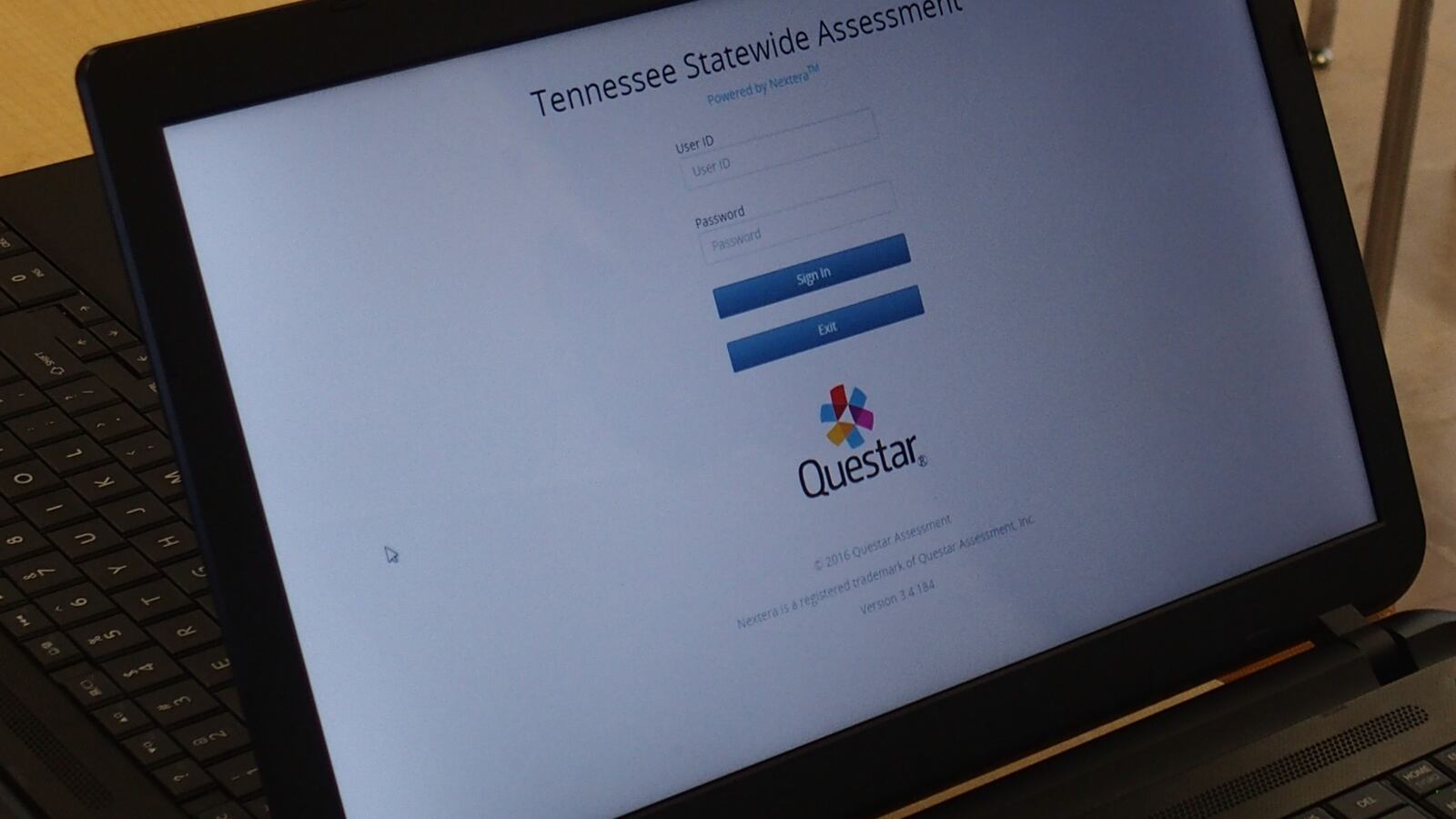Students and teachers tackling state exams this week relished a stretch of normalcy, enjoying several days in a row without significant slowdowns or shutdowns in computerized testing.
With a week of TNReady testing to go and about 70 percent of exams complete, testing company Questar permanently disabled a function believed to have interrupted Tennessee’s assessment on Monday, the latest in a string of technical problems that have plagued schools this spring.
The newest culprit — a tool that allowed text to be turned into speech for students needing audible assistance — was contributing to problems logging in and submitting tests, according to Sara Gast, a spokeswoman for the state Department of Education.
And regardless of how many students were using the tool in individual schools, the issue affected districts statewide, she added.
“We believe that we would not be able to turn this feature back on without significantly risking further disruption and widespread slowdowns as students log on and submit their exams,” Gast wrote superintendents Tuesday evening in an email update.
As a result, special education students who previously used the text-to-speech feature must have the TNReady text read aloud to them by a teacher or proctor — similar to how their younger counterparts take the test with pencil and paper.
About 1 percent of Tennessee students receive read-aloud instructions as part of their special education plans, which means that schools have had to rearrange their schedules and staffing to accommodate the sudden change.
Tennessee reintroduced statewide computerized testing this school year after its failed rollout in 2016. However, this time around, the state only required online testing for high school students. Some districts opted to go digital for students in middle grades as well.
Since testing began on April 16, high schoolers have experienced significant disruptions online on at least half of the testing days, with causes ranging from a reported cyber attack to the severing of a main fiber optic cable by a dump truck in East Tennessee.
Testing went better this Tuesday and Wednesday, according to Gast, adding that “our helpline has been very quiet,” despite a high volume of testing.
Online testing officially extends through May 9, but many districts already have submitted their last tests to Questar. Paper-and-pencil testing for elementary-age students ends on Friday, and those materials will be picked up and transported to Questar for scoring.
The scores won’t count for much, though, due to emergency legislation approved last month in response to concerns about the validity and reliability of the results. Criticizing the frequent interruptions, the legislature directed that “no adverse action may be taken” against any student, teacher, school, or district based on scores this school year.
The state Department of Education has been working ever since to develop guidelines on how TNReady will play into Tennessee’s accountability systems this year.
“We are striving to be as thoughtful, collaborative, and efficient as possible as we work on this,” Gast said. “The new law impacts many areas and our goal is to implement it as written while honoring the spirit in which it was passed.”

